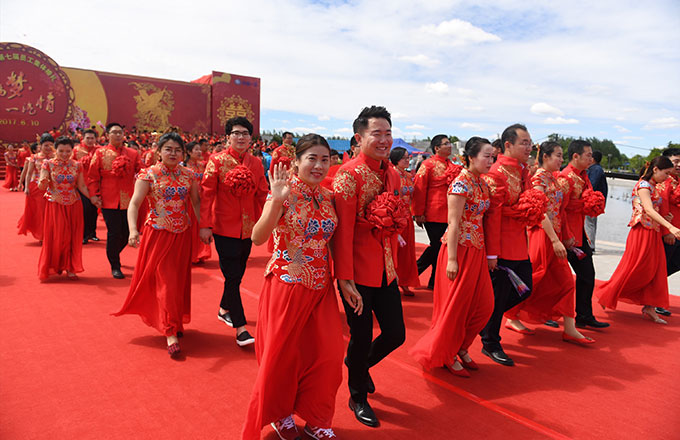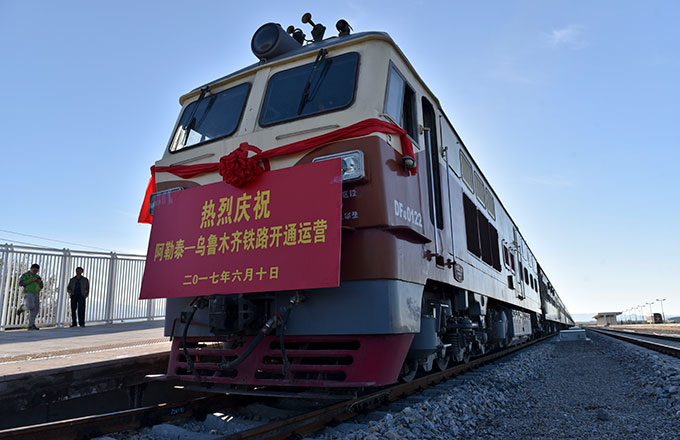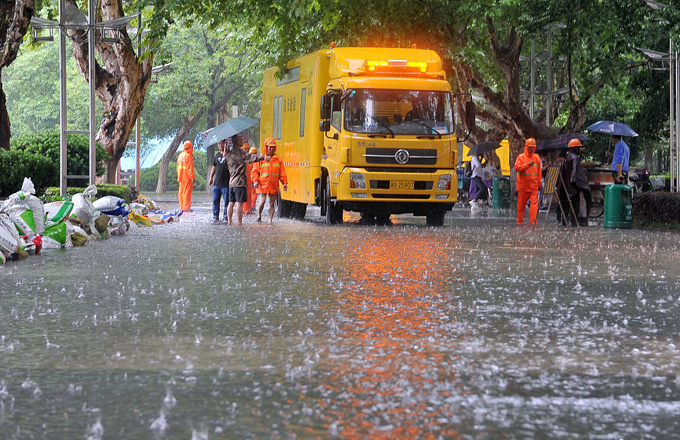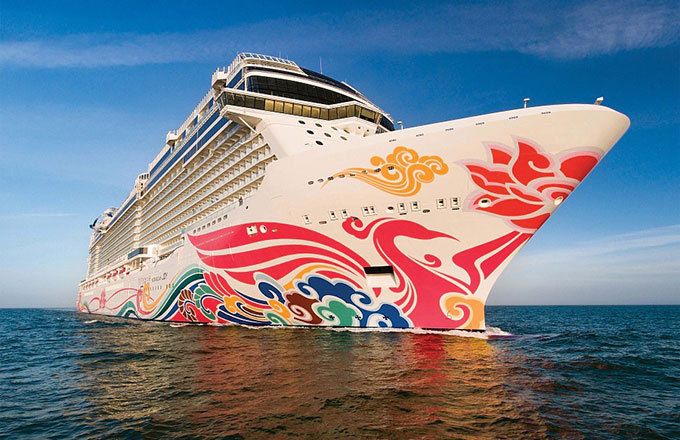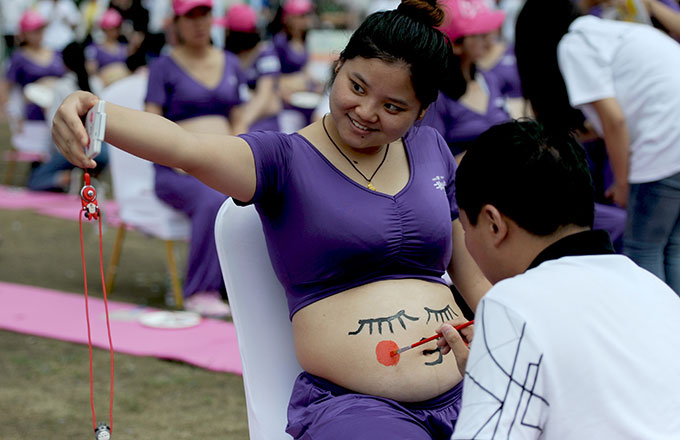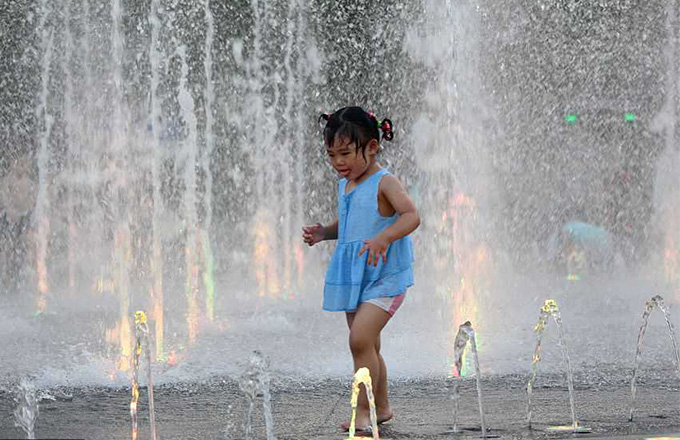With stable policies of reform and opening to the outside world, China can have great hopes for the future
September 4, 1989
Today I want to concentrate on discussing when and how I should retire.
I have decided to retire. My retirement will be very beneficial. If I stay on and die at my post, it is hard to tell what repercussions that might evoke worldwide. Even if I am retired and no longer dealing with official business, I can still play some small role as long as I'm around. That's because many foreigners know me, which to some extent affects their relations with China. There is nothing we can do about that. For the sake of China's security, it is better for me to retire now than to wait until something bad happens, or to stay on at my posts until I die. I made up my mind to retire several years ago. I've said on many occasions that I wanted to retire, and I sincerely meant it. As things stand now, there is no perfect time for me to do so. Every time there was one reason or another why I should not retire. At the Party's Thirteenth National Congress I secured a partial retirement. But I have always thought it would have been better if I had retired completely.
We have to select as members of the leading bodies younger people and Marxists. We do have trained people with political integrity and a good understanding of Marxism-Leninism. In choosing leaders, we should not confine ourselves to Party members but should have a wider field of vision. In short, we must have some young people as leaders, or it will be difficult to carry on. Some members of the current Standing Committee of the Political Bureau are elderly, but some are relatively young. When they were elected, I said that it was important for both Chinese and foreigners to perceive them as people who would follow the policies of reform and opening to the outside world. As we see it now, domestic and international reaction to the leaders we elected at the Fourth Plenary Session of the Thirteenth Central Committee and to their recent actions has at least been quiet. People think the new leading body is reliable. This shows that it can gain the trust of the people and of the international community. If two or three or six months after the old-timers like us retire, the situation is really stable, if we have political stability and unity, if China is still developing and is continuing to follow its current line, principles and policies, then our influence will gradually wane. That will be a good thing.
When this incident occurred, I didn't think it would be right for me to retire immediately. It has been three months since then. But if a formal decision on my retirement is made at the Fifth Plenary Session of the Party's Thirteenth Central Committee, to be held in about a month and a half, that will make four or five months, and by that time the political situation will be relatively calm, so that will be an opportune moment for me to retire. I have stated on many occasions that my last task is to take the lead in establishing a retirement system. I have already been trying to gradually get used to retirement. It will take time for me to completely relinquish the work I have been doing for decades. At the next national Party congress the Central Advisory Commission will be abolished and a retirement system established. What would you say to my retiring at the Fifth Plenary Session? We have been hesitating for so many years that my retirement has already been delayed. Old people have their own strengths and weaknesses. Their minds may fail at any time, and at a certain stage their physical strength also deteriorates. This is an unalterable law of nature, and old leaders have to be continually replaced by new ones. Under a retirement system, it will be fairly easy to replace leaders with new ones or to transfer them to other posts. Let's consider this settled. That is the first question.
The second question is the way in which I should retire. I have discussed it with Comrade Yang Shangkun, and we have agreed that the simpler it is, the better. We should not make a habit of singing the praises of people who retire. That isn't necessary. If you have worked in the Party for decades, people know what you have accomplished in your lifetime and can form an objective evaluation. Having thought a lot about it, I've come to realize that it would be best for me to retire in a simple manner and to be the first to do so. A simple, neat and efficient way would be for the Central Committee to grant my request for retirement and say a few words about it. I have stated time and again that it is abnormal to base the fate of a country on the prestige of one or two persons. It is not good to eulogize them on the occasion of their retirement. Some other formalities, such as memorial meetings, which have been held too frequently and consumed a great deal of human and material resources, should also be simplified.
All of us have worked for the revolution for decades and have achievements to our credit. We have also made some mistakes, but it is only our achievements that are made public. I have declined many times the request of foreigners that I write my autobiography. If an autobiography is only about the author's merits and doesn't speak of his mistakes, he is simply lavishing praise on himself. What's the point of that? It is good that some comrades have written their memoirs. Comrade Nie Rongzhen has written realistically about his own experiences. Other people, such as Comrade Li Weihan, have also written about their mistakes. But some have mainly given publicity to themselves in their memoirs. That sort of thing is not commendable. The evaluation of me should not be too exaggerated or too high. Some people place me higher than Chairman Mao, which is not good. I am very much afraid of that -- too high a reputation would be a burden for me. I hope you will see to it that both my retirement and my funeral are simple.
The third question is to whom I should hand over my posts when I retire. We must have a chairman for the Military Commissions. First of all, we should decide on a chairman for the Party's [Central] Military Commission, who will serve concurrently as chairman of the State Military Commission. The Party must keep control of the army, for the army has always been under its leadership. This could be clearly seen during the recent turmoil. The army led by the Party is also, of course, the army of the state. When I resign at the Fifth Plenary Session of the Central Committee, we should have a new chairman for the Central Military Commission, and there should also be some changes in the State Military Commission. It has been our tradition that the army obeys the Party, that no small cliques are formed and that power is not concentrated in just a few hands. The army must always place itself at the disposal of the CPC Central Committee and the Party. Only those who listen to the Party should be elected leaders of the army. The army must not do anything under its own banner. I should like to propose that Comrade Jiang Zemin be appointed Chairman of the Central Military Commission.
In short, I'm not going to concern myself with the work of the Central Committee, except for extremely serious problems. In this way the new Central Committee, especially the Political Bureau and its Standing Committee, will be able to think independently and work on their own. All the comrades of the Standing Committee are present today. I hope you will create a good image domestically and internationally, an image of stability and unity, and be a model of stability and unity. Ours is a big country. As long as our leaders remain stable and firm, nobody will be able to do anything against China. China must have a leading collective with the image of people who favour the policies of reform and opening to the outside world. I hope you will pay special attention to this point. We cannot abandon those policies. If we stick to convention and do exactly what we did before, without trying new experiments and suffering some setbacks and failures, we shall never attain our strategic goals. We must really carry out reform and open to the outside -- we can't do it with our doors closed. In the next two to three years we should make thorough readjustments. We should correct our mistakes, such as inflation.
Recently I have been pleased with what's going on among the students: they are doing some serious rethinking, and that's very educational. They do have many problems, but it can be very educational for them to rethink what they did -- that's more important than reading any books. We should step up education in the Four Cardinal Principles and basic Marxist theories. If we do that for a few years, changes will take place in people's social conduct. If we try to straighten things out again on the literary and artistic front and persist in cleaning up the publications market according to the current plan, the situation will improve. Our objective is to help people to have high ideals and moral integrity, to be well educated and have a strong sense of discipline. In the 1950s Party members and the people as a whole had lofty ideals, were disciplined and committed to serving the people, and they loved the Party, the country and socialism. Weren't those excellent attitudes and morals? In the three hard years from 1959 through 1961, didn't the Party and the people struggle in unity and surmount the difficulties? How good our people were! We should restore and promote this tradition. Our army is good too. There are new young commanders now -- I don't know any of them personally, but the army has certainly maintained its good traditions.
If your leading body is going to succeed, it is essential for you to form a collective leadership. You must be a collective in which each member cooperates closely with the others, and a collective that thinks independently. You should be tolerant and generous with each other, help each other, complement each other's thinking and help correct each other's mistakes and shortcomings. A good collective like that is very necessary right now, more so than ever before. This collective must have a core. We used to have Chairman Mao as the core. Over the past few years we have had the problems of replacing two leaders and of curbing inflation. Because we had a core, it was easy to solve those problems. Comrade Jiang Zemin should become the core of your collective. As for your method of work, I'd like to make a suggestion when major questions arise concerning policies and principles, all organizations, including the State Council and the National People's Congress, should have their leading Party cadres submit those questions to the Standing Committee of the Political Bureau for discussion. After decisions are made, they should be discussed and implemented by the organizations concerned.
Not long ago I proposed that the authority of the Central Committee be strengthened. Comrade Chen Yun has complained that there are too many local officials, that they only discuss problems without making decisions, or that if they do make decisions, instead of carrying them out, each one goes his own way. This is a correct criticism. It is bad that they don't listen to the Central Committee and the State Council. Especially when we run into difficulties, it would be impossible to overcome them if the Central Committee and the State Council had no authority. As long as we have the authority, we can accomplish important tasks even at difficult times. We should not deny the importance of authority and should centralize power wherever necessary. Otherwise, time will be wasted, at the least.
Cadres who don't obey the Central Committee and the State Council should be dealt with firmly. They may be warned in advance, but if they don't heed the warning, they and their superiors should be transferred. In the latter period of the "cultural revolution" [1966-1976], Chairman Mao shifted the commanders of the eight greater military regions from one region to another. He did so because he knew the art of leading the army, that is, not to allow any leading cadre to form a circle and have a sphere of influence. It is a tradition of the army to have its leaders transferred frequently. During the wars the army was divided into mountain strongholds. But because of our understanding of Marxism and our organizational sense of discipline as Communists, we did not form factions. Even so, the "mountain-stronghold mentality" had bad effects, and a special campaign was launched to combat it. Local cadres may present the same problem; when they have been in one place for too long, they should be transferred elsewhere.
So far as the international situation is concerned, there is a question of war. If the United States and the Soviet Union don't fight each other, there will be no world war, but small wars will be unavoidable. The current wars between underdeveloped countries are actually what the developed countries need. Their policy of bullying backward countries has not changed. China should hold its ground, or others will plot against us. There are many people in the world who hope we will develop, but there are also many who are out to get us. We ourselves should maintain vigilance. We should safeguard our reputation for acting independently, for keeping the initiative in our own hands and for refusing to be taken in by fallacies or to tremble in the face of danger. And under no circumstances should we show any weakness. The more afraid you are and the more weakness you show, the more aggressive others will be. They will not be kind to you because you are weak. On the contrary, if you are weak, they will look down upon you. What are we afraid of? We are not afraid of war. We don't think there will be a world war, but even if there were, we would not be afraid. Anyone who dared invade China would never get out again. China has a wealth of experience in resisting foreign aggression. We would first defeat the invaders and then start reconstruction.
Another aspect of the international situation is the upheaval in some socialist countries. I think the upheavals in Eastern Europe and the Soviet Union were inevitable. It is hard to predict how far they will go; we still have to observe developments calmly. If, while these countries are in turmoil, China doubles its GNP in real terms for the second time, according to plan, that will be a success for socialism. If we have basically realized modernization by the middle of the next century, we shall have further reason to say that socialism has succeeded. Of course, we should not boast. The more developed we are, the more modest we should be. But if China holds its ground and attains its goals for development, that will demonstrate the superiority of socialism.
There is no doubt that the imperialists want socialist countries to change their nature. The problem now is not whether the banner of the Soviet Union will fall -- there is bound to be unrest there -- but whether the banner of China will fall. Therefore, the most important thing is that there should be no unrest in China and that we should continue to carry on genuine reform and to open wider to the outside. Without those policies, China would have no future. How did we achieve what we did over the past ten years? Through reform and opening to the outside. As long as we pursue those policies, and as long as our socialist banner stands firmly planted, China will have tremendous influence. Of course, that will put the developed countries all the more on guard against us. Notwithstanding, we should maintain friendly exchanges with them. We should keep them as friends but also have a clear understanding of what they are doing. We should not criticize or condemn other countries without good reason or go to extremes in our words and deeds.
That is what I think of the situation as a whole. The crucial thing for us is to avoid unrest. We have a solid foundation, a foundation laid during decades of fighting. We should pass this fighting spirit on to future generations for them to maintain, because it is our capital. What's going on in other countries is not our business, but we should make one thing clear: in China socialism will not change. China will surely follow to the end the socialist road it has chosen. No one will be able to overwhelm us. As long as China doesn't collapse, one fifth of the world's population will be upholding socialism. We are full of confidence that socialism has a bright future.
In short, my views about the international situation can be summed up in three sentences. First, we should observe the situation coolly. Second, we should hold our ground. Third, we should act calmly. Don't be impatient; it is no good to be impatient. We should be calm, calm and again calm, and quietly immerse ourselves in practical work to accomplish something -- something for China.
Will we be able to quadruple the GNP by the end of the century? I hope I shall be around at that time to see that it has been done. The second stage in our three-stage strategy is essential, because what is achieved then will serve as the foundation for the third stage. We should build some large projects to demonstrate our confidence. With stable policies of reform and opening to the outside world, China can have great hopes for the future.
(Excerpt from a talk with leading members of the CPC Central Committee. )
(From Selected Works of Deng Xiaoping, Volume III <1982-1992>)
- China issues guidelines to develop 'all-for-one' tourism demonstration zones
- Torrential rain triggers disaster in Southwest China
- Harvest time for wheat reapers in Shanxi
- Over 200 couples marry in Changchun group wedding
- Calligraphy tops other icons of Chinese culture, WeChat data shows





